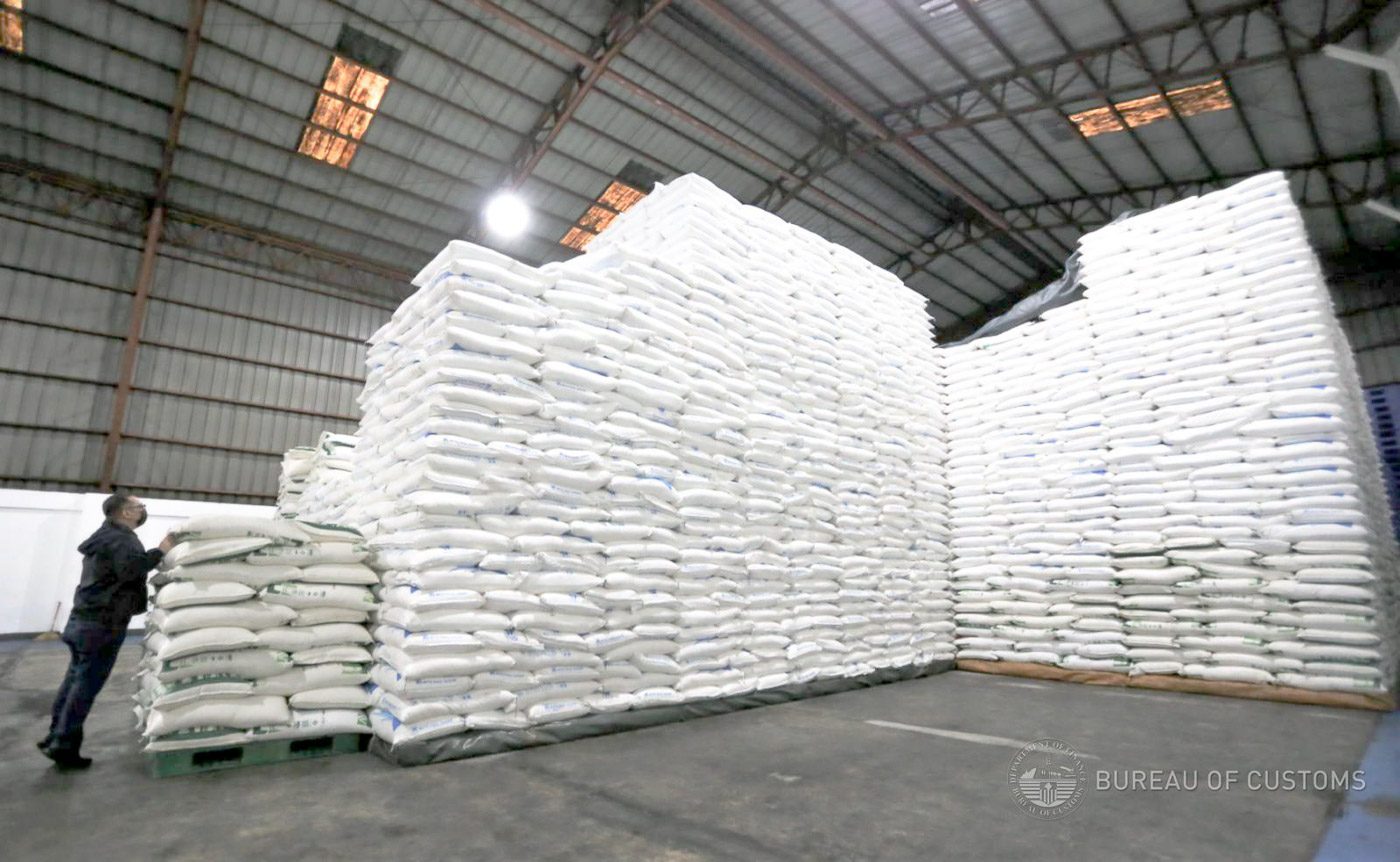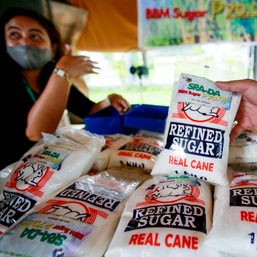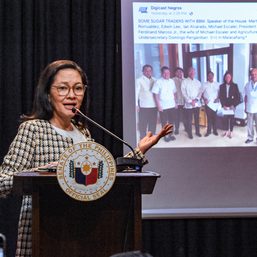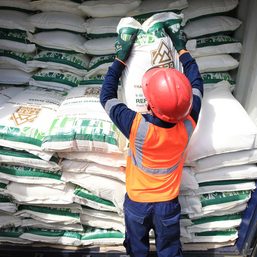SUMMARY
This is AI generated summarization, which may have errors. For context, always refer to the full article.

President Ferdinand Marcos Jr. has approved the importation of 150,000 metric tons of refined sugar and ordered that all of the country’s produce for 2022 to 2023 would be solely used for local consumption amid tight supply.
On Tuesday, September 13, Marcos, who acts as agriculture chief, signed Sugar Order No. 1, which allocated the projected domestic raw sugar production of 1.88 million metric tons from September 2022 to August 2023, for local consumption.
The order dated August 26 was posted on the Sugar Regulatory Administration’s (SRA) website on Tuesday.
Other signatories are Agriculture Undersecretary Domingo Panganiban, SRA Acting Administrator David Alba, and SRA board members Ma. Mitzi Magwag and Pablo Azcona.
Marcos also signed Sugar Order No. 2, which allowed the importation of 150,000 metric tons of refined sugar.
Of the total imports, 75,000 metric tons would be for industrial use, while the other half would be for consumers.
Participants of this import program should ensure that the sugar would arrive no later than November 15. Any volume that arrives after the said date would be subject to future reclassification, if required. Importers that fail to bring in any volume of its allocation on or before the said date may face sanctions and penalties by the sugar board.
The order was released on September 13 and signed on September 1.
A sugar shortage and declining production has pushed refined sugar prices to around P95 per kilo, nearly double the price a year ago, Department of Agriculture data showed. Brown sugar prices are also up to P70 a kilo from P42 a year ago.
Sugar demand is usually around 2 million metric tons, but production is only estimated to reach 1.88 million metric tons.
The said shortage led to the sugar importation fiasco, where the previous SRA board allowed the importation of 300,000 metric tons of sugar, but Malacañang denied that Marcos approved the order.
The Senate blue ribbon committee recommended criminal and administrative charges against Agriculture Undersecretary Leocadio Sebastian, as well as SRA administrator Hermenegildo Serafica and board members Roland Beltran and Aurelio Valderrama Jr for alleged graft and anti-agricultural smuggling.
Sugar executives pointed to Executive Secretary Victor Rodriguez for giving signals for the approval, but Rodriguez denied doing so. Rodriguez also said that he did not reply to Sebastian’s text messages regarding the matter on purpose.
The Senate minority released its own report on the sugar probe hearings and concluded that Rodriguez was not “blameless” for what happened. They also believed that the recommended filing of administrative and criminal charges against Sebastian and the former SRA officials are “disproportionately punitive,” considering that they all apparently acted on good faith. – Rappler.com
Add a comment
How does this make you feel?
![[Vantage Point] The transformation of sugar barons](https://www.rappler.com/tachyon/2022/08/tl-sugar-barons.png?fit=449%2C422)

![[Vantage Point] Sugar mess gets messier (Part 2)](https://www.rappler.com/tachyon/2023/04/Sugar-mess-April-1-2023-f.jpg?resize=257%2C257&crop=304px%2C0px%2C720px%2C720px)


![[Vantage Point] Sugar mess gets messier](https://www.rappler.com/tachyon/2023/03/sugar-smuggling-march-21-2023.jpg?resize=257%2C257&crop=378px%2C0px%2C1080px%2C1080px)



![[Just Saying] SONA 2024: Some disturbing points](https://www.rappler.com/tachyon/2024/07/TL-marcos-sona-points-july-23-2024.jpg?resize=257%2C257&crop=335px%2C0px%2C720px%2C720px)

There are no comments yet. Add your comment to start the conversation.